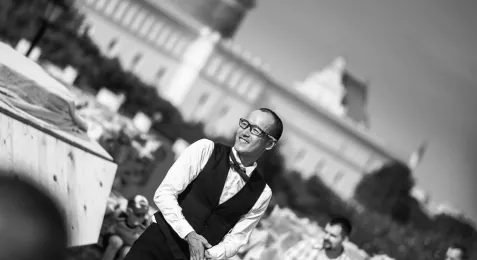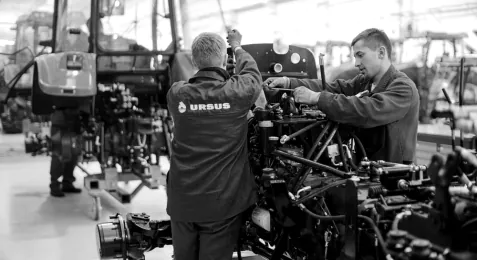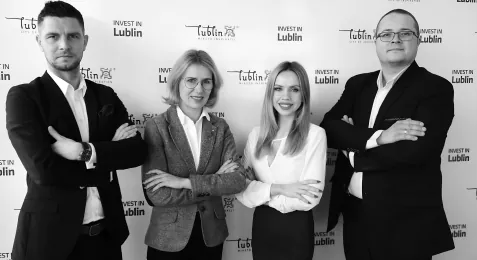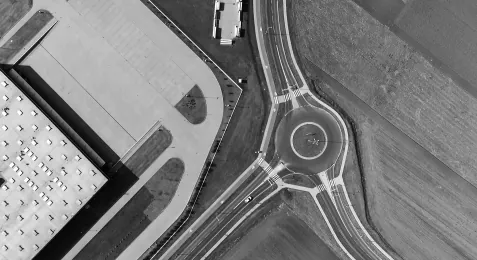Lublin Info Centre
Mariusz Sagan on Shaping Lublin: Innovative Strategies for a Dynamic City Brand
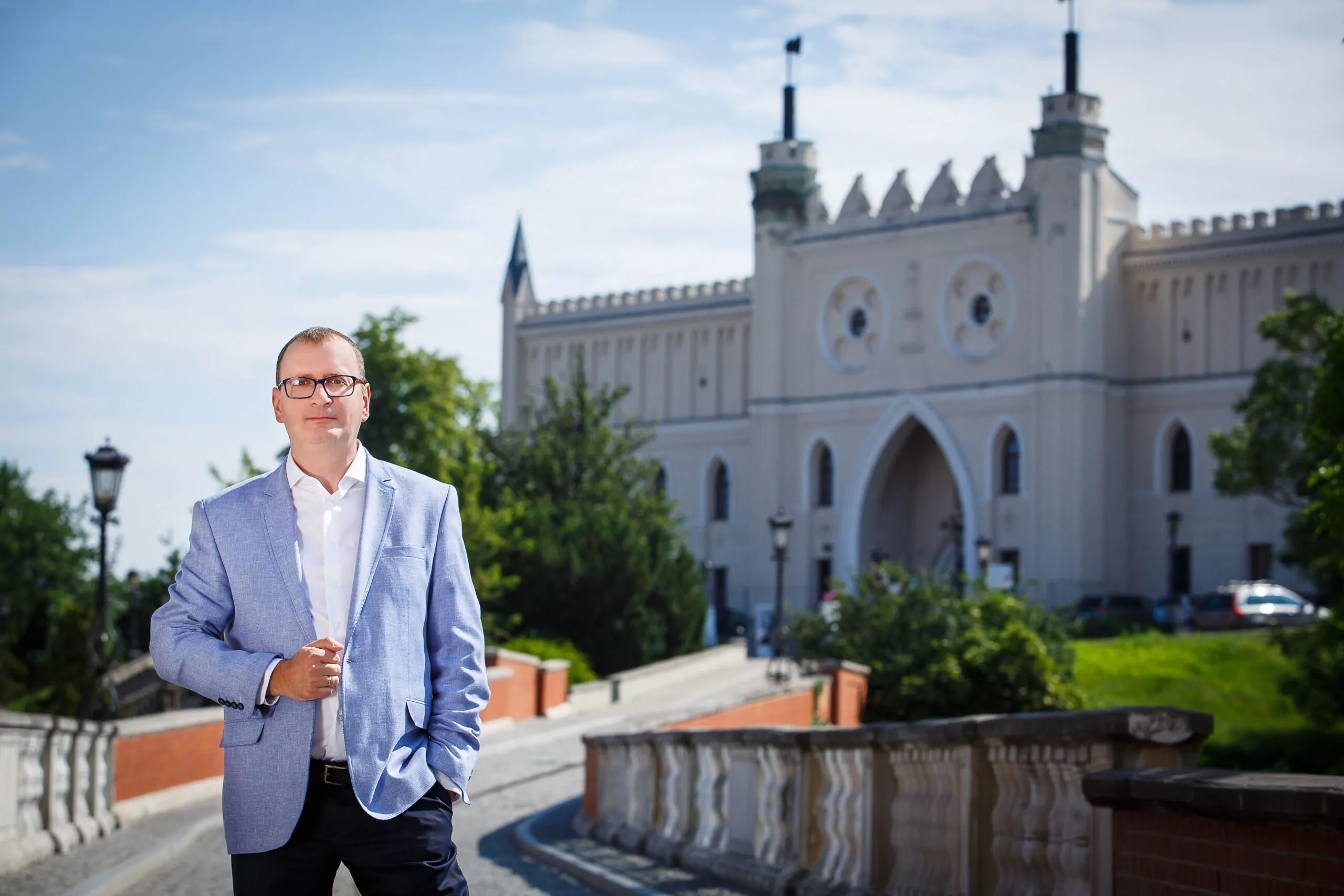
1. Mariusz, imagine you meet someone at a conference who has never heard about Lublin. How would you introduce the city in terms of its unique identity?
When I think about Lublin, one of the first things that comes to mind is its multicultural character. Our city serves as a melting pot of cultures, created mostly by international students comprising 15% of the entire student body, giving our city the highest internationalization rate in Poland. As a matter of fact, Lublin stands shoulder to shoulder with OECD countries like the Czech Republic, Hungary, the Netherlands, and New Zealand, as revealed in the International Students Mobility Indicator 2023. They’re drawn here by our top-notch universities offering a diverse range of subjects like technology, medicine, and the arts. But Lublin isn’t just about academics. The fact that we are known for our openness, inclusiveness, and hospitality towards different cultures also plays its part. Our city is bursting with cultural experiences and opportunities for learning and enjoyment. That’s why it’s earned its spot as one of Europe’s top 10 student-friendly cities by College Magazine, where we were ranked even before Barcelona and Paris.
It is a compact and well-organized place providing above-average living conditions for residents of various age groups, conducive to learning, professional fulfillment, and all kinds of activities – be they sports, cultural, or social. Our city is committed to pursuing the 15-minute city concept, prioritizing sustainability and bolstering the quality of life by ensuring easy access to essential services and amenities. Safety is also a hallmark of Lublin, as reflected in various reports, including a recent ranking by Business Insider. In this ranking, Lublin impressively secured the second-best spot in Poland for quality of life, outpacing larger cities like Warsaw, Kraków, and Wrocław.
With an excellent road network, including expressways facilitating seamless connections to nearby cities, and proximity to Lublin Airport, travel to international destinations is convenient. Additionally, Lublin’s strategic location along the Via Carpatia route positions it as a vital hub connecting the Baltic States with the Balkans and Europe’s major transportation corridors. This geographical advantage bodes well for the city’s potential in logistics and production development.
Ultimately, Lublin is a modern metropolis that we are building together for future generations – clean, green, safe, and free from horrendous traffic jams.
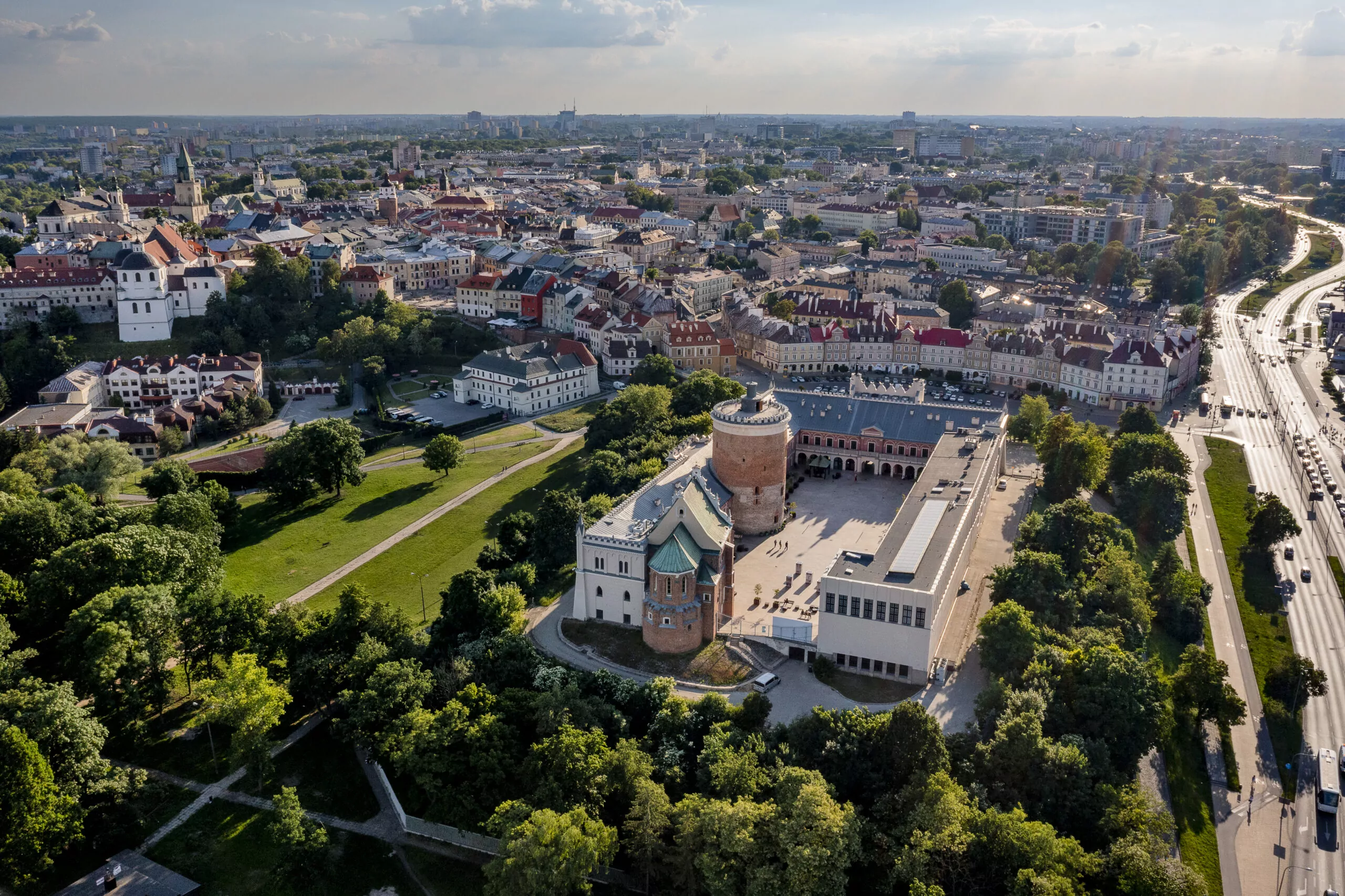
2. How has Lublin embraced high technology to drive its strategic development and foster innovation within the city?
For over a decade, Lublin has consistently pursued a development strategy aimed at building a highly specialized and technologically advanced city. This process is multi-stage, but thanks to meticulously identified intelligent specializations such as smart grids and ICT, modern business services, automotive and machinery industries, automated food processing and functional food, chemical processes and specialty chemistry products, innovative logistics, and a healthy society, we are making model changes that establish us as a high-tech center.
In line with this commitment to high technology, Lublin is deeply focused on the development of medical, IT, and engineering industry sectors. By creating and coordinating specialized clusters such as the Lublin Medical Cluster, Lublin IT Upland, and Industrial Upland, through the Lublin City Office, we set development directions while simultaneously serving as impartial and reliable initiators of cooperation within the environment. Very strong cooperation, coordinated by the Lublin local government, in which key partners from business and academic, guarantees rapid economic development and supports the implementation of innovations. Lublin, as the capital of the Lublin Voivodeship, due to its location and history, strides confidently towards the future, combining traditional values with modernity. We are a leader in the adoption of digital technologies, making us a leading center of the IT industry in Poland. Our unique approach to innovation involves collaboration with local universities and businesses, promoting Lublin as an incubator of talent and ideas.
3. As Lublin continues to expand its presence on the international stage, could you discuss the city’s efforts to attract foreign students and businesses, and how this contributes to its goal of building a diversified economy?

Lublin is undoubtly an attractive location for internationals. In the academic year 2022/2023, 9,014 out of 58,196 students came to Lublin from over 100 foreign countries, which makes our city the most internationalized metropolis in Poland (15,49 %). The process of internationalization of Lublin’s universities is supported by programmes such as ‘Study in Lublin’ that by the implementation of various initiatives encourages, in particular, foreigners to live and educate in Lublin. Many international students are drawn to our city for the opportunity to receive top-notch education without financial strain. Moreover, the prospect of joining international companies seeking individuals with strong language skills often encourages them to stay in Lublin after graduation. It’s s a win-win since this multinational dimension of academic life translates into the availability of specialists with linguistics competences. They are excellent candidates for employees of international companies which have decided to establish their branches in Lublin. And there are plenty of them, including names like PwC – Financial Crime Unit, Phlexglobal, Orange – Global Support for Performance Europe, Billenium, Sii, Capgemini, and Lingaro or MM Packaging, ABM Greiffenberger, Data Modul, Plastic Omnium, Trilux and many others. Over the past decade, more than 100 new investments have flowed into the city, totaling over EUR 1 billion in investment outlays. These investments have not only created around 12,000 job opportunities but have also diversified Lublin’s economic base, with 80% of these investments concentrated in the Special Economic Zone.
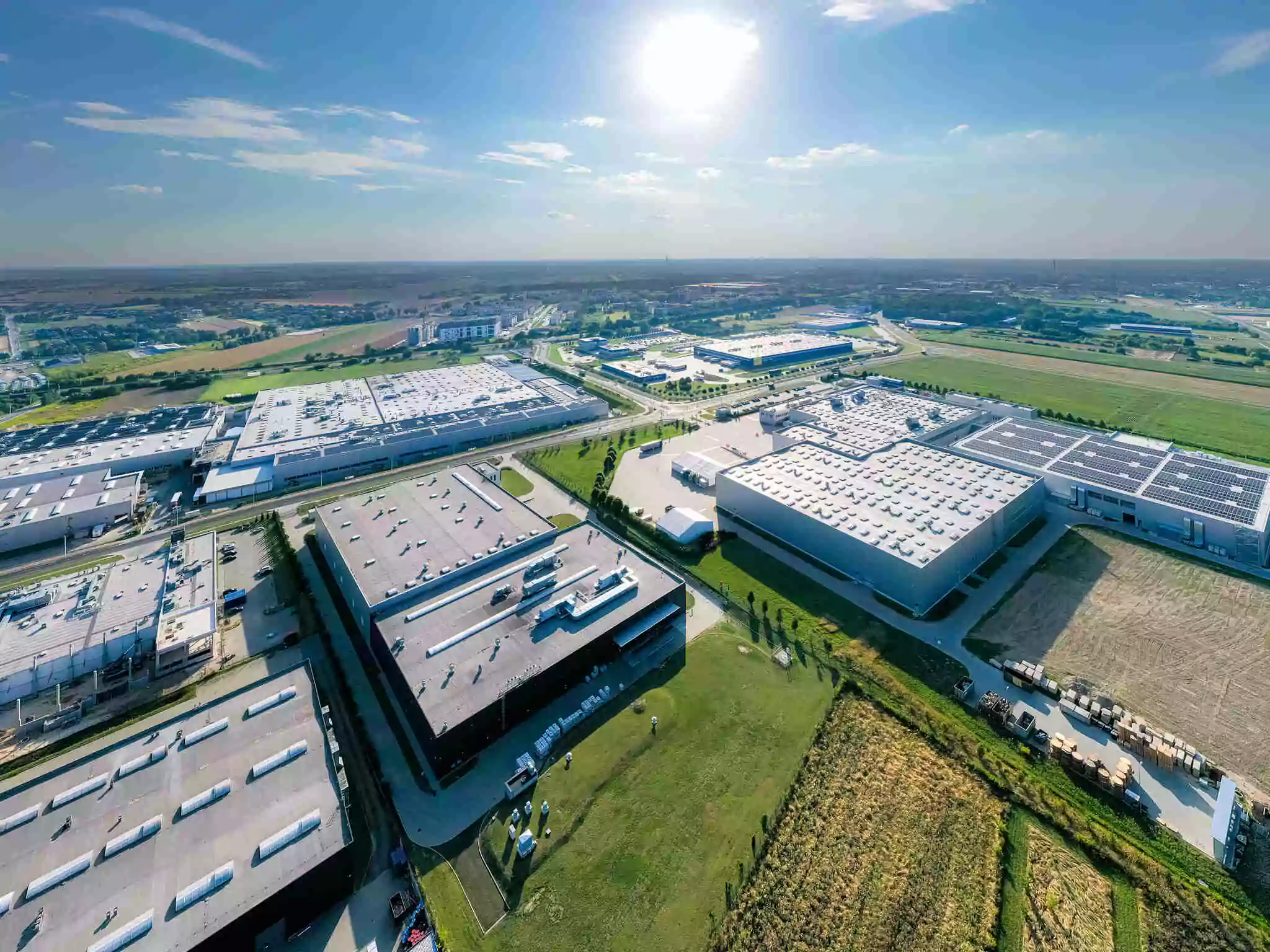
What attracts them here?
Just like I mentioned before the key aspect would be probably access to highly qualified human capital. What is more, Lublin’s local market is characterised by low employee turnover. According to Antal, every fifth Lublin resident has changed their employer only once in their lifetime, and every third resident works in the same place all their life. Lublin’s well-developed network of roads, modern airport, and rail connectivity make it a highly desirable location for investors and entrepreneurs seeking an easy access to both domestic and international markets. Furthermore, Lublin’s strategic location and excellent cooperation with Ukrainian partners position it as one of the main European hubs for the country’s recovery. All of that, along with relatively lower employment and operational costs, attractive office and warehouse market and high quality of life, creates excellent conditions to run a business here.
4. What key strategic initiatives is Lublin undertaking to position itself as a dynamic and forward-thinking city, both regionally and globally?
As a city, we embrace the model of open innovation and knowledge sharing, following global trends in building smart cities.
Thanks to its unconventional approach to city management, support for local entrepreneurship and education for the development of future competences, Lublin has received prestigious awards such as key European Entreprise Promotion Awards EEPA (1st place for promoting entrepreneurial spirit in 2022 edition), European Cities and Regions of the Future 2022/2023 (FDI Strategy – 6th place among European cities), Prime Property Prize 2023 (nomination in the Investor Friendly City category), Cashless Cities (finalist), World Smart City Awards (finalist), Local Government Management Leader 2023(finalist), Awards for Innovation in Politics (finalist), Innovative Practices in Public Institutions(finalist). The diverse fields in which we receive these accolades confirm our city’s wide-ranging competencies and commitment to balanced, sustainable development.
Moreover, we actively gather know-how and build models of effective city development management, assuming the role of a local leader for neighboring municipalities and even larger cities in Poland. This includes areas such as entrepreneurship education and participatory actions. We have an insatiable appetite and aspire to become a medium-sized European metropolis.
Aligned with this belief, we place a strong emphasis on inclusivity and involving residents in decision-making processes – as demonstrated by the “Let’s Imagine Lublin Together” project, where we collaborated with nearly 15,000 residents to create our most important strategic document.
The year 2023 was exceptional for us as the first city in Poland to receive the title of European Youth Capital. A tangible outcome and extension of our efforts to meet the needs of young people is the adoption of this year’s strategy, “City of Youth: Lublin’s Youth Policy.” Building on our good practices and with our support, two more cities – Lviv and Ghent – have also pursued the title of European Youth Capital.
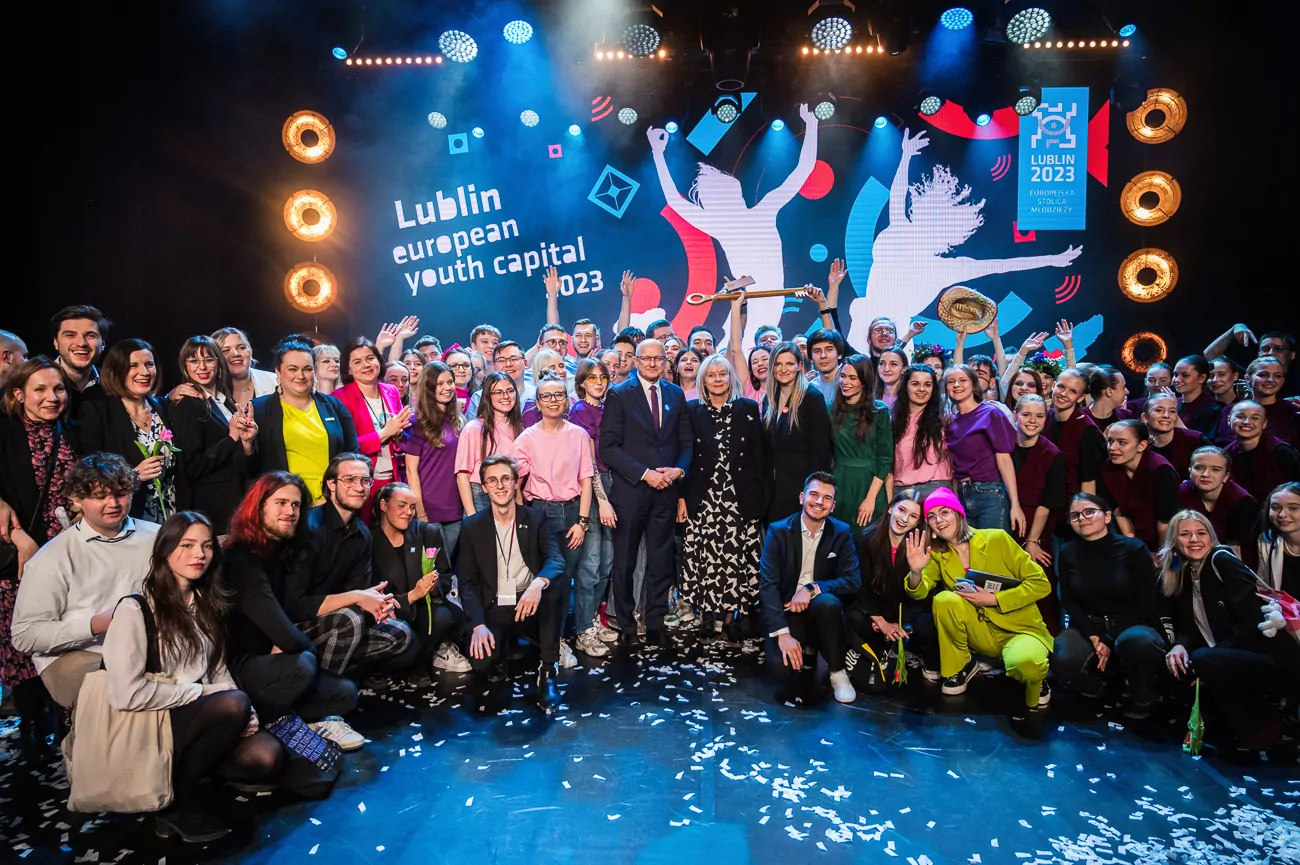
We maintain our momentum and focus on the next prestigious competition – the European Capital of Culture 2029. To achieve this, alongside organizing recognizable cultural events throughout Europe such as the Magicians Carnival, Urban Highline Festival, Jagiellonian Fair, and Lubliner Festival – Jewish Culture Festival, we are building an integrated ecosystem to support the cultural sector and creative industries.
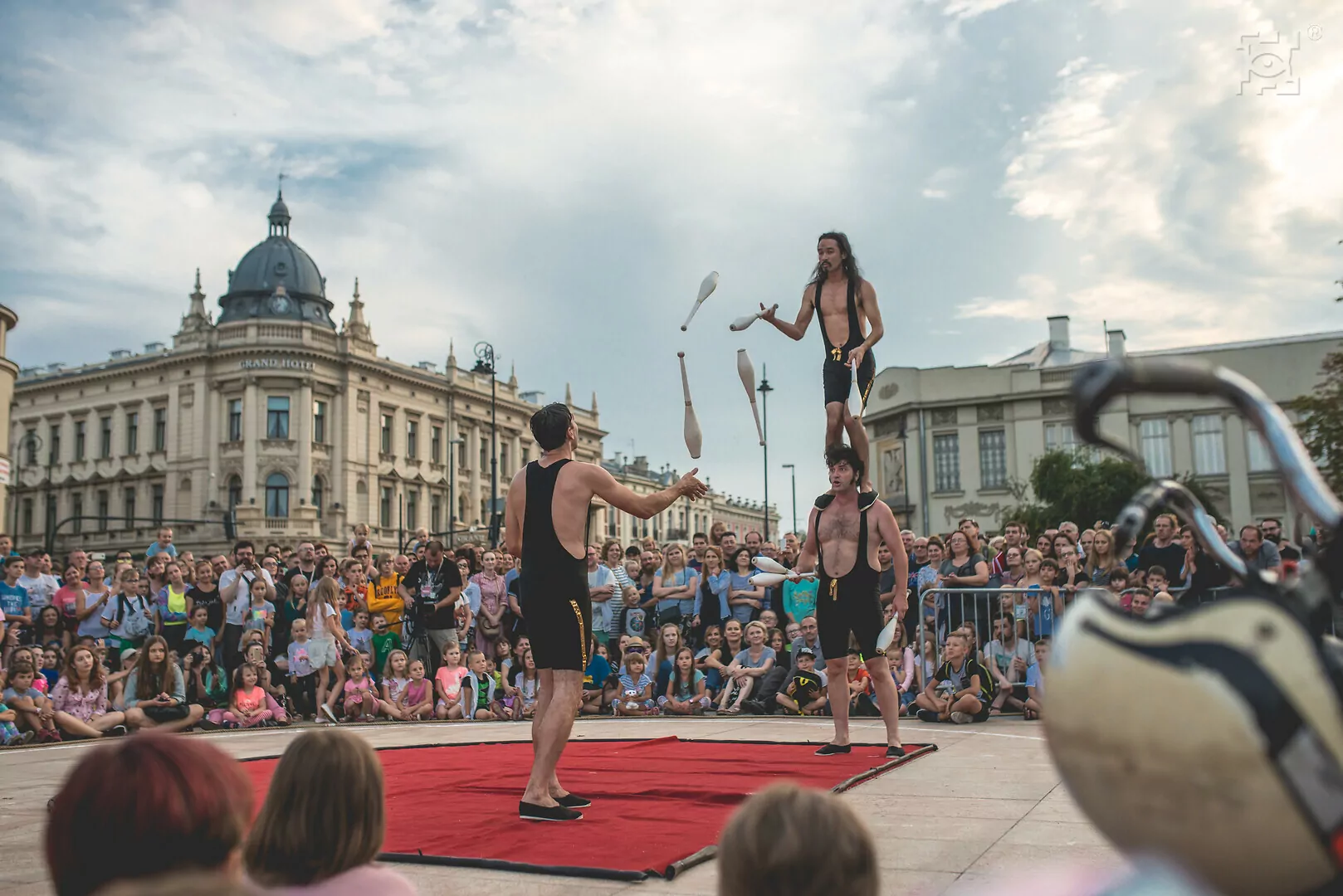
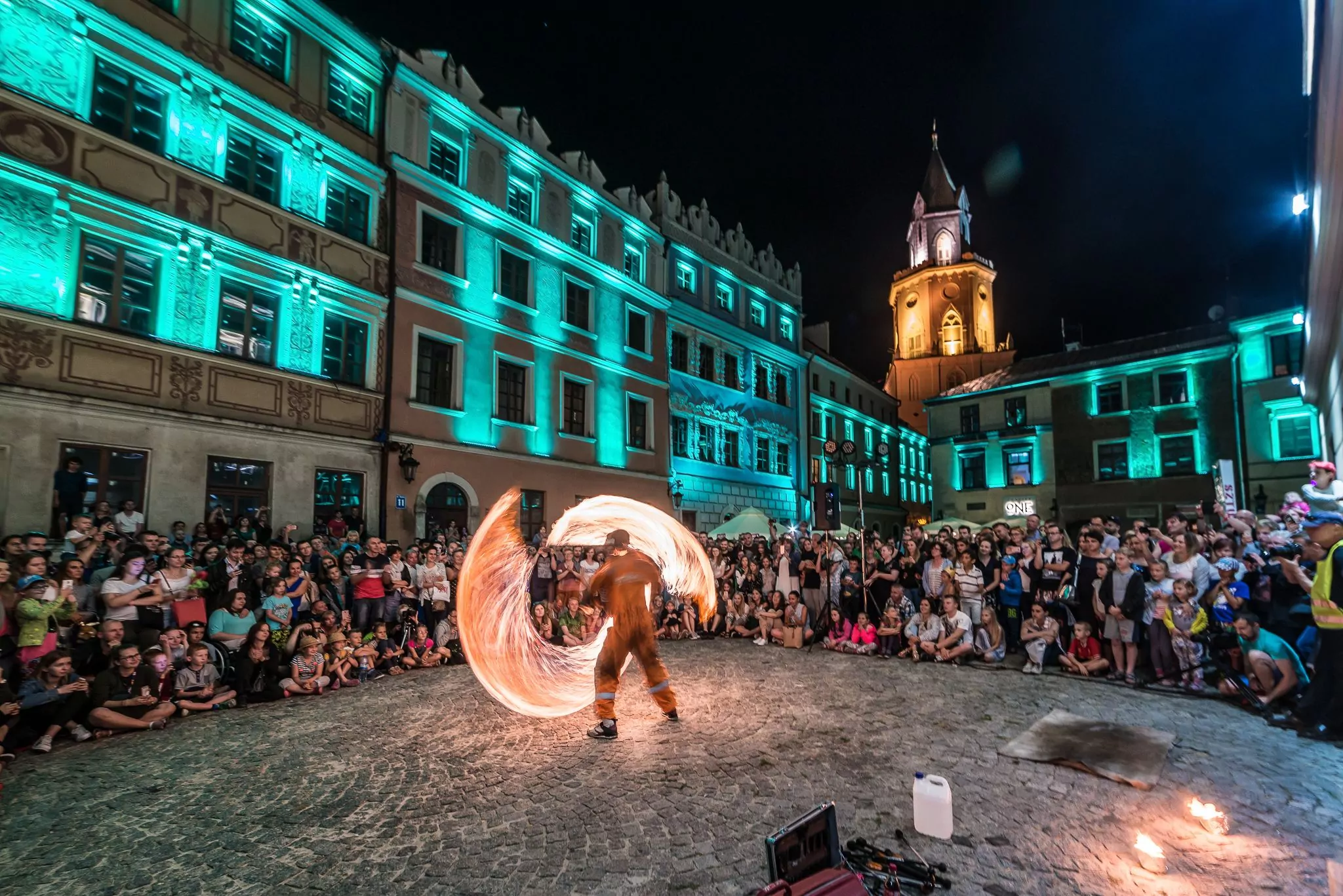
5. In what ways is Lublin integrating sustainable development practices into its urban planning and economic strategies to ensure long-term prosperity and resilience?
Sustainability is a top priority for us. Over a decade ago, Lublin embarked on a path of dynamic development that balances the needs of our residents and entrepreneurs while prioritizing environmental requirements. The continuation of this model is outlined in the Lublin 2030 Strategy.
Thanks to subsequent investments in green public transportation, today Lublin is one of the Polish and European leaders in zero-emission public transportation. The city already has a 40% share of zero-emission vehicles in its entire fleet – the current system counts 99 trolleybuses and 40 electric buses. Looking ahead to the new EU perspective, we anticipate further development in electromobility and the acquisition of approximately 100 zero-emission vehicles.
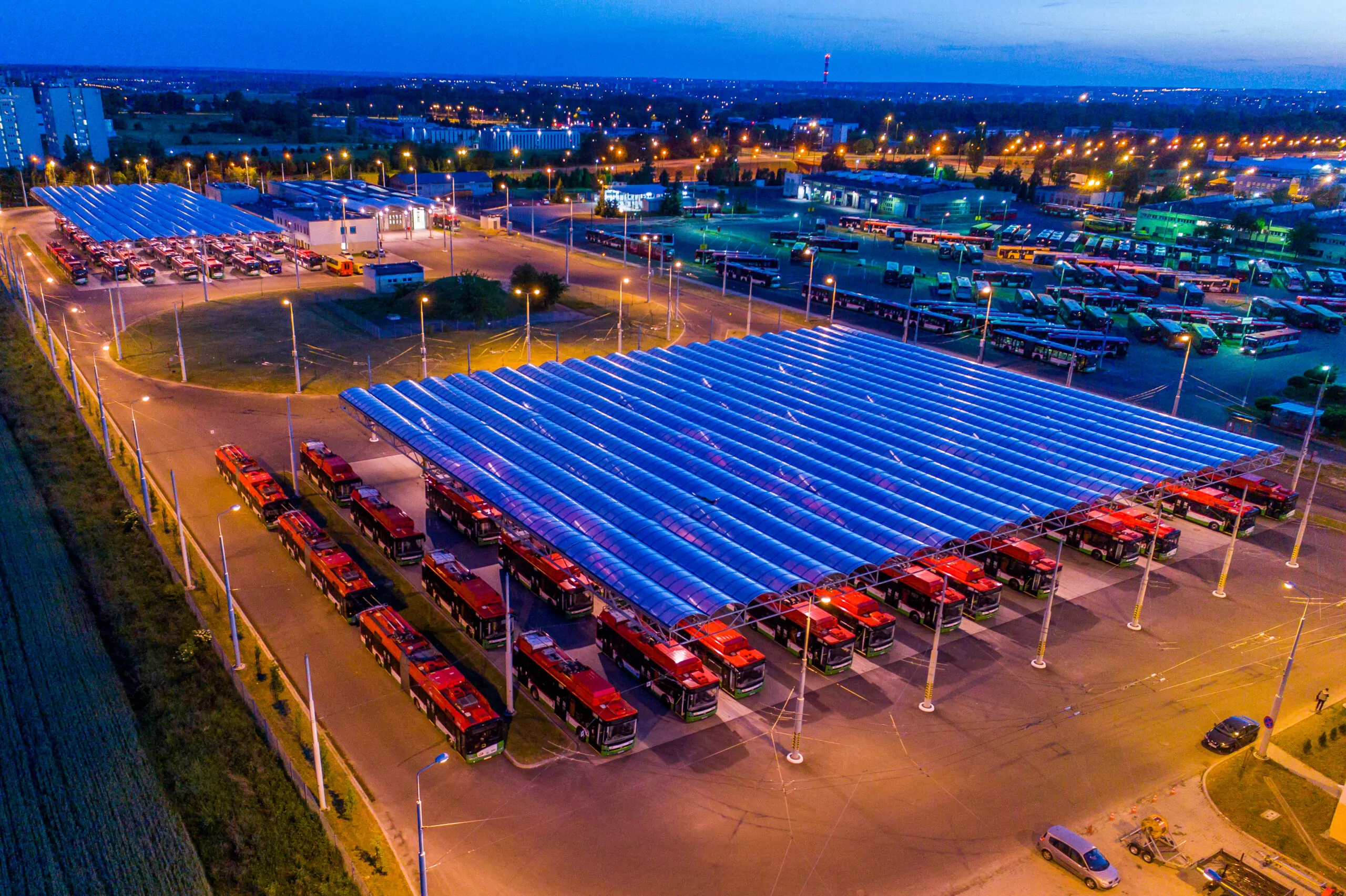
What’s more, our region emerges as the primary Polish hub for the production of hydrogen buses and hydrogen technologies. The first hydrogen-powered bus has already joined the fleet of public transportation in Lublin with plans to purchase another twenty of such vehicles. Lublin is also going to have the first-ever hydrogen station in the Lubelskie Voivodeship. This station, scheduled for completion by June 2024 will be accessible to the public, offering convenience for anyone looking to refuel with hydrogen in Lublin.
Another important moment for the development of Lublin’s transportation was the signing last year of an agreement to purchase energy generated from 100% renewable energy sources to power trolleybuses and electric bus chargers.
However, public transportation is not just vehicles, but the entire complex system, so we are committed to optimizing it holistically so as to encourage residents and other travelers to change their transportation habits and actively use public transportation, including public bicycles. One of the stages of this plan is the optimization of public transportation routes and schedules. It was preceded by public consultations and analyses planned in parallel with the launch of the modern and multifunctional Lublin Metropolitan Station, a key investment for the city and the region. Its goal is to develop and improve the public transportation system, integrating different types of public transportation, not only in Lublin, but also in the Lublin Functional Area, which includes neighboring municipalities.
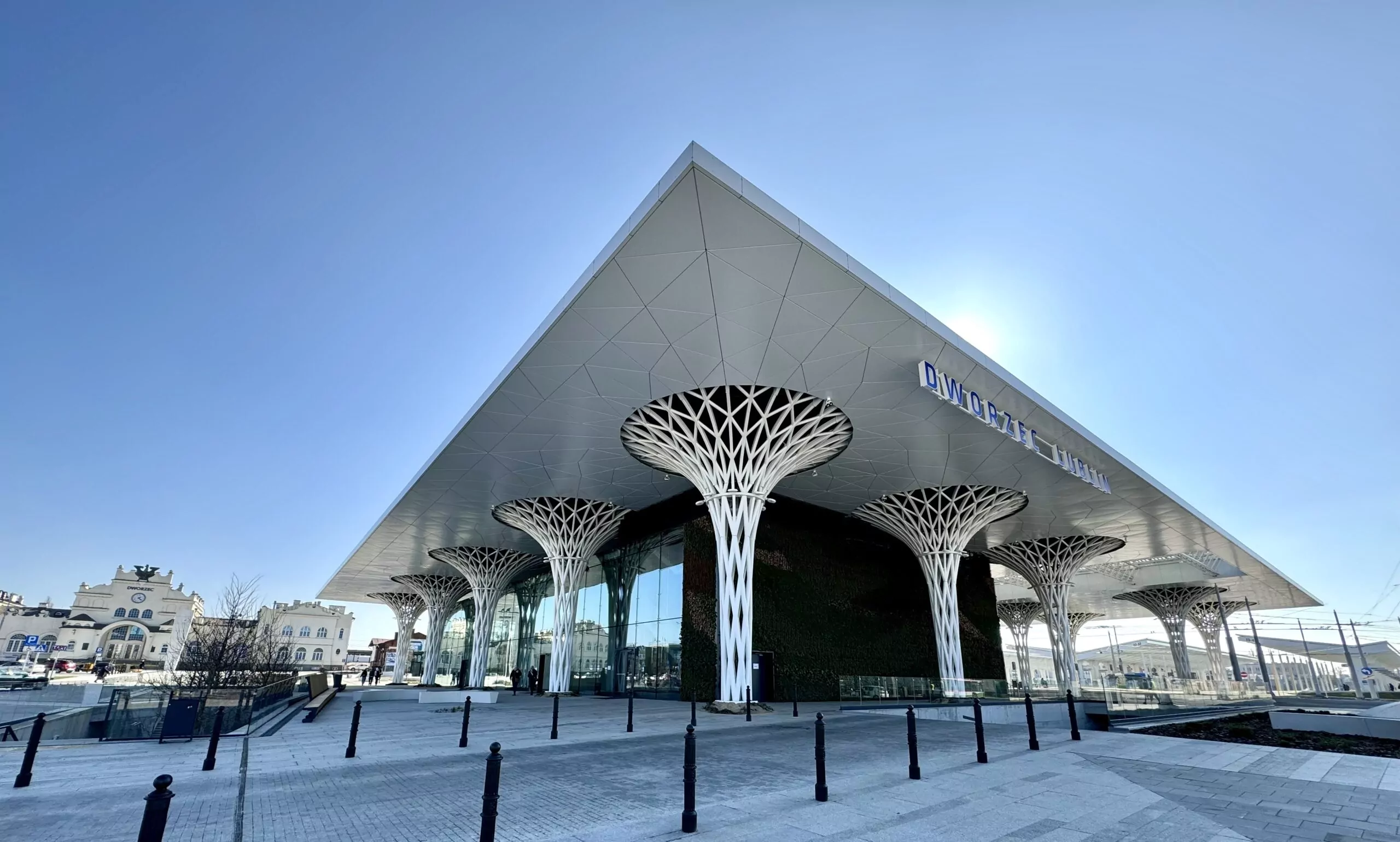
6. If asked to nominate up to five professionals for our Global Map of Place Brand Impact Makers, who would they be (based on their outstanding work in the field)?
I would suggest Marcin Kęćko, the head of the Tourism Development Office at Lublin City Hall. Together with the whole team in his department, they collaborate with local groups such as museums, tour guides, and hotels to make Lublin a better place to visit. Their goal is to establish Lublin as a popular destination for tourists from Poland and around the world. Thanks to their efforts more people are visiting Lublin and enjoying its rich culture and friendly atmosphere. Their hard work has already paid off. In 2023, a record number of tourists visited Lublin—1.588 million people in total. Most of them were from Poland, showing a 65% increase from the previous year. And there were seven times more visitors from other countries, with the majority coming from Germany, Israel, the United Kingdom, Canada, and the Czech Republic.
7. Lastly, we’d love to hear your thoughts on The Place Brand Observer. How do you use it? What can we do better?
The Place Brand Observer is an invaluable resource for professionals like myself, providing insights and inspiration from around the world. I regularly read articles and case studies to stay updated on the latest trends and best practices in place branding and economic development. To enhance its impact, I believe the Observer could facilitate more interactive discussions and networking opportunities among practitioners, fostering collaboration and knowledge exchange on a global scale.
Thank you, Mariusz – we will take these suggestions on board!
To learn more about Lublin’s economic potential, new investments, and business collaboration opportunities follow our LinkedIn profile: Invest in Lublin
